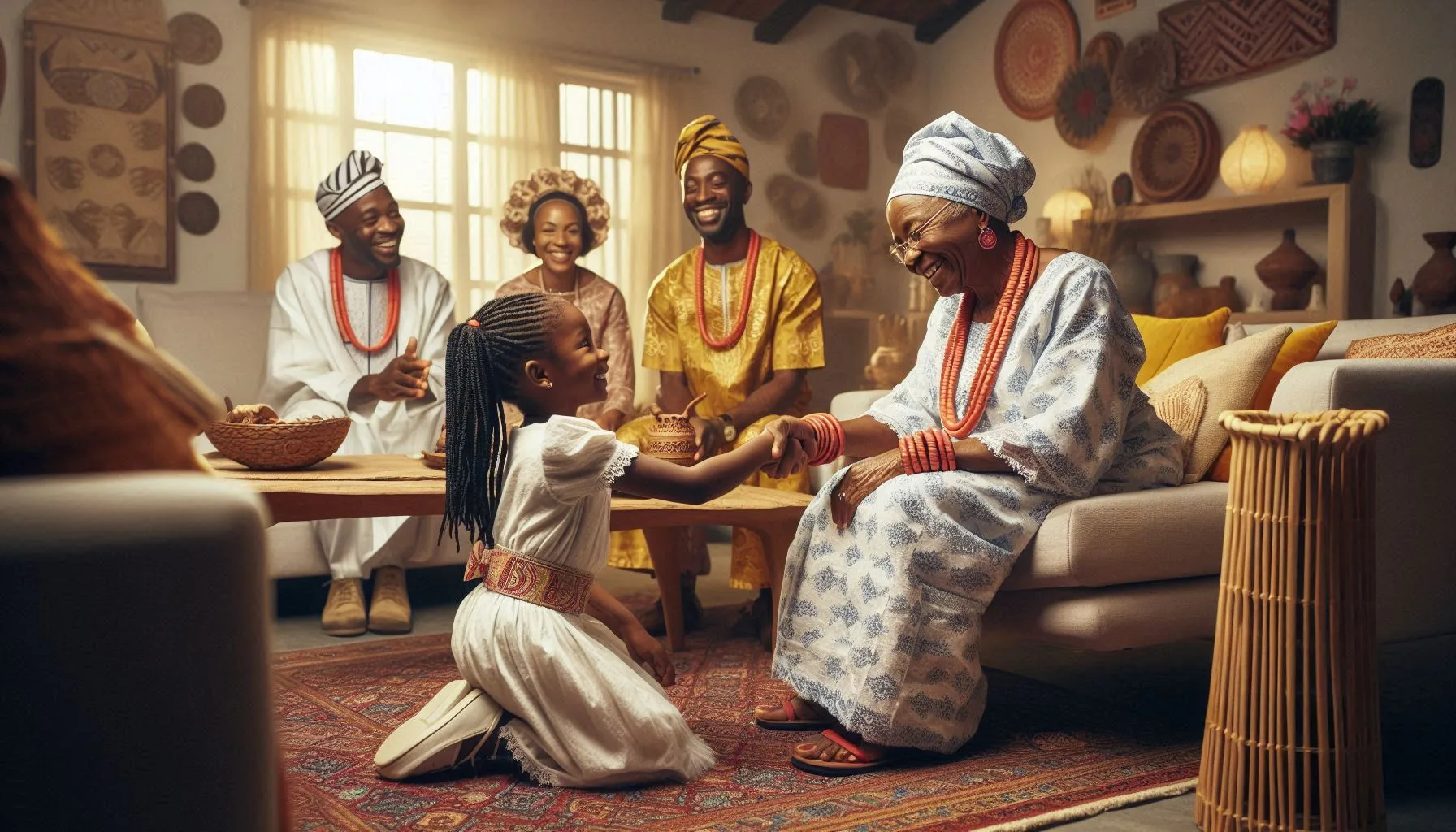In Yoruba culture, respect is a cornerstone of social interaction, deeply rooted in daily life and passed down through generations. It is not merely a matter of courtesy; it forms the foundation of order and harmony within the family and the broader community. From early childhood, Yoruba children are introduced to traditions of respect that shape their behavior and values for life.
In Yoruba society, the family is the primary institution where respect is taught. From the moment children learn to walk, girls are trained to kneel when greeting elders, while boys are taught to prostrate. These gestures are more than simple acts of politeness; they symbolize humility, deference, and recognition of the social hierarchy. Respect within the Yoruba family extends beyond these physical gestures, comprising of language, behavior, and social roles.
One of the most distinctive markers of respect in Yoruba culture is the use of titles when addressing others. Older siblings are never called by their first names alone. Instead, honorifics such as “Brother,” “Sister,” “Aunty,” or “Uncle” are attached to their names, reflecting their position within the family and the community. This custom shows respect for elders and the acknowledgment of their roles and responsibilities.
In conversations, the Yoruba language further emphasizes respect through the use of specific pronouns. When addressing elders, the pronoun “ẹ” is used, as in the phrase, “Ṣe ẹ ti jẹun?” (Have you eaten?). Between peers, the pronoun “ọ” is used, as in “Ṣe o ti jẹun?” This linguistic distinction is a subtle yet powerful expression of deference, ensuring that respect is present even in casual interactions.
Another key aspect of Yoruba respect is the cultural expectation that children do not interrupt when elders are speaking. Instead, they are taught to listen carefully and wait their turn to contribute to the conversation. This practice is not about suppressing the voices of the younger generation, but rather instilling the virtues of patience and humility. By observing and listening, children learn to appreciate the wisdom of their elders and the value of thoughtful communication.
As societies around the world continue to modernize, many traditional practices are fading. However, in Yoruba culture, the rituals of respect remain evergreen. Kneeling, prostrating, and addressing elders with honor are not seen as outdated customs but as essential elements of a well-ordered society. These acts reinforce the values of discipline, humility, and social harmony, ensuring that respect remains a central aspect of Yoruba life.
For Yoruba people, respect is more than a series of prescribed behaviors—it is a way of life that encourages unity and peace within families and communities. By preserving these traditions, the Yoruba people maintain a cultural identity that values the dignity of every individual and the importance of social roles.
The Importance of Respect in Yoruba Culture





